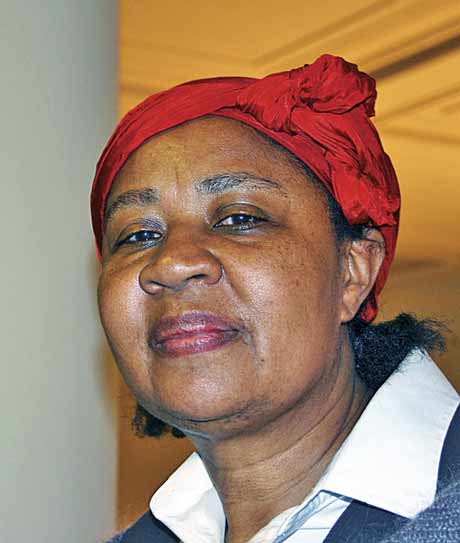Book Review

A review by Frank Birbalsingh
As the fifth volume in a fictional saga based on her family, Jamaica Kincaid’s Mr. Potter scans the life of her father Mr. Potter who was born in 1922, in Antigua, when the Caribbean island was still a British colony. Enchanting portraits of the author’s mother Annie Victoria Richardson appear in earlier novels such as Annie John (1985) and The Autobiography of my Mother (1996) while My Brother (1997) focuses on the author’s brother Devon who died of AIDS in 1996. In these novels Kincaid’s technique of a first person narrator works wonderfully, as it also does in Mr. Potter where she claims added justification for it in recording events that her illiterate father could not. No doubt the focus on family in so many texts creates suspicion of incestuousness or narrowness. After all, Kincaid’s mother is never far away, not even in Lucy (1991), her second novel which surveys the author’s early experience in the US but cannot help acknowledging the brooding presence of Annie Richardson in Antigua. For all that, the confessional intensity achieved by Ms. Kincaid’s first person narratives is utterly bewitching.
Mr. Potter takes this first person confessional narrative style to what looks like its ultimate limit. From the beginning, we are held spellbound by a dirge-like, soporific-inducing style in which the speaker/narrator daughter of Mr. Potter dutifully intones what might be taken for a benediction on her father’s pitiful life. In truth, it is more elegy than benediction, lamenting the woeful predicament not only of the author’s father, but her family, community and nation – all West Indians – descended mostly from Africans brought during previous centuries as slaves to the Caribbean, where today they survive in a condition most candidly appraised by George Lamming as one of “sprawling dereliction” in his classic novel In the Castle of my Skin (1953). Look, for instance, at the narrator’s estimate of her father as someone: “not unfamiliar with upheavals and displacements and murder and terror; his very existence in the world in which he lived had been made possible by such things.” Also, Mr. Potter: “did not curse the day on which he was born, he only cursed the day when each and every one of his ancestors was born.”
Referred to as “Mr. Potter” throughout the novel, until his death at the age of seventy, the narrator’s father was the last child of Nathaniel Potter, a fisherman who was: “the father of eleven children with eight altogether different mothers.” At his birth, we are told, Mr. Potter was held in contempt by the local midwife who delivered him. Then his mother, Elfrida Robinson, is described as someone whose life at sixteen: “was already shrivelled and pinched,” before, at the age of twenty-three when her son was seven years old, she: “grew tired of him and gave him away to a woman named Mrs. Shepherd, and then she walked into the sea,” and drowned herself.
Such endemic personal tragedy is not a result of some exotic psychotic execrescence, but proof of an intimate, umbilical connection between the Caribbean and British colonialism. For Mr. Potter’s mother first considers naming him “Rodney” after “the English maritime criminal George Brydges Rodney,” although she eventually settles for “Roderick Nathaniel Potter” because: “she wanted a name that had no meaning at all for her,” For the same reason we are told: “Mr. Potter’s lifetime began in the year fourteen hundred and ninety-two but he had been born on the seventh day of January, nineteen hundred and twenty-two.” As we know, 1492 is the year when Columbus is falsely credited with “discovery” of the Caribbean. Kincaid reminds us that this falsity resides in the very DNA of West Indian civilisation.
The rest of the narrative follows this false, shifting colonial trajectory: after he is taught to drive by his foster father, Mr. Shepherd, Mr Potter becomes a taxi driver employed by a foreigner - the Lebanese businessman Mr. Shoul. It was unusual, by the way, for Mr. Shepherd to acquire a used car: as a black Antiguan, he: “had not expected ever to own a motor car.” Meanwhile, like his father before him, Mr. Potter fathers several children by different women before he meets the narrator’s mother Annie Richardson who works as an assistant in the office of Dr. Weizenger, another foreigner - a Jewish dentist who had fled from Czechoslovakia during World War Two. Mr. Potter and Annie live together briefly and Annie has four abortions until she is seven months pregnant with the narrator and has a bitter quarrel with Mr. Potter. Annie then: “took all of Mr. Potter’s savings money he had stored in a crocus bag under their bed” and leaves so that Mr. Potter never sees their baby, named “Elaine” after a daughter of Mr. Shoul for whom Annie also works.
But, as hinted earlier, the real triumph of Mr.Potter is its style that repeats phrases with a sort of choric regularity that sounds musical, entrancing, hypnotic while it increases both the poetic intensity and moral depth of Kincaid’s exploration of the DNA of West Indian civilisation. Here, for example, are her comments on the collective lives of her characters: “the small, irregular stumble that their existence had made in the vast smoothness that was the turning of the earth on its axis was no more and was not celebrated or even regretted by anyone or anything.” Such withering insignificance stems not from universal awareness of our common incomprehension or insignificance as hapless human beings within a mysterious universe, but from a specific, man-made event of colonial cruelty, suffering and victimisation that left dereliction and despair in its wake in the Caribbean. It is why: “Mr. Potter had no patrimony for he did not own himself, he had no private thoughts...he had no thoughts about his past, his future and his present.”